Fengkui Ju
A minimal coalition logic
Mar 17, 2024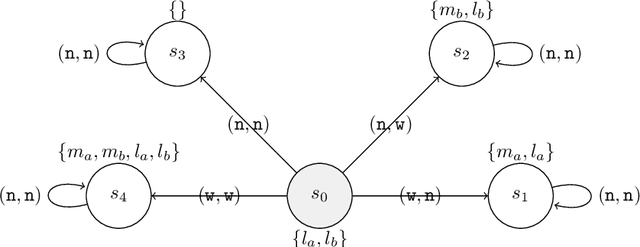
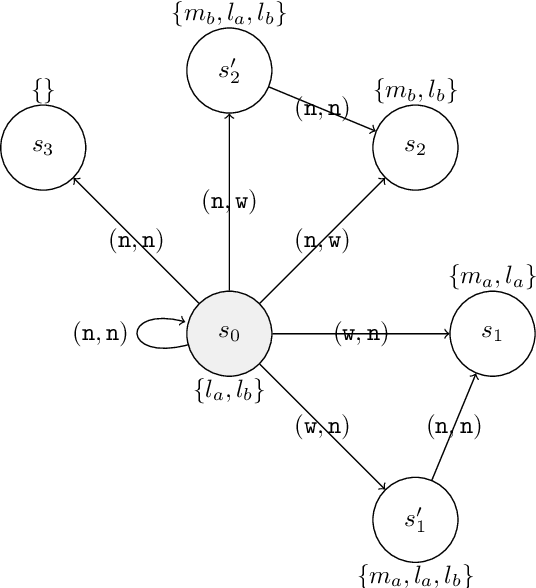
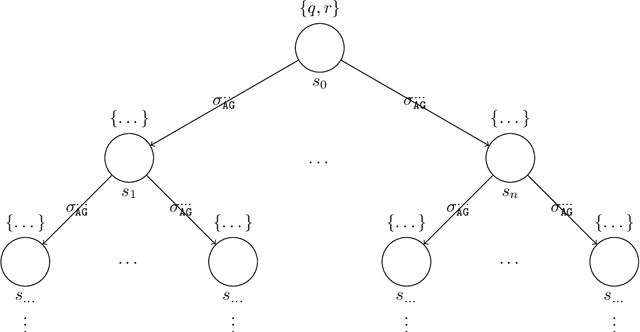
Abstract:Coalition logic is a central logic in strategic reasoning studies. In this paper, we first argue that Coalition Logic models, concurrent game models, have three too-strong assumptions. The first one is the independence of agents; that is, the merge of two available joint actions of two disjoint coalitions is always available for the union of the two coalitions. The second one is seriality; that is, coalitions always have available joint actions. The third one is determinism, that is, the grand coalition's joint actions always have a unique outcome. Second, we present a coalition logic based on general concurrent game models, which do not have the three assumptions. We show the completeness of this logic and compare it with Coalition Logic in detail. This logic seems minimal in the context of strategic reasoning.
A logical theory for strong and weak ontic necessities in branching time
Aug 25, 2022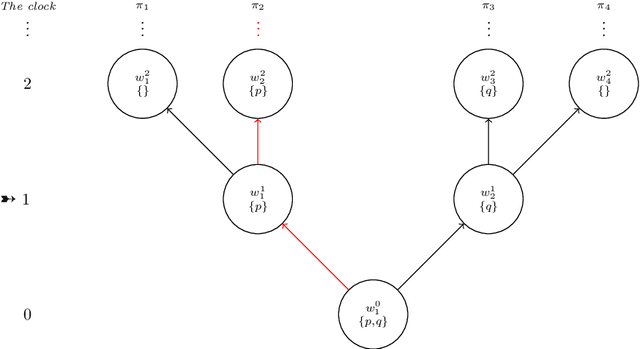
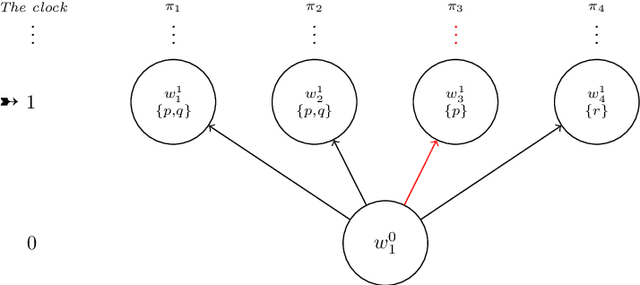
Abstract:Ontic necessities are those modalities universally quantifying over domains of ontic possibilities, whose ``existence'' is independent of our knowledge. An ontic necessity, called the weak ontic necessity, causes interesting questions. An example for it is ``I should be dead by now''. A feature of this necessity is whether it holds at a state has nothing to do with whether its prejacent holds at the state. Is there a weak epistemic necessity expressed by ``should''? Is there a strong ontic necessity expressed by ``must''? How do we make sense of the strong and weak ontic necessities formally? In this paper, we do the following work. Firstly, we recognize strong/weak ontic/epistemic necessities and give our general ideas about them. Secondly, we present a complete logical theory for the strong and weak ontic necessities in branching time. This theory is based on the following approach. The weak ontic necessity quantifies over a domain of expected timelines, determined by the agent's system of ontic rules. The strong ontic necessity quantifies over a domain of accepted timelines, determined by undefeatable ontic rules.
A logical theory for conditional weak ontic necessity based on context update
Aug 25, 2022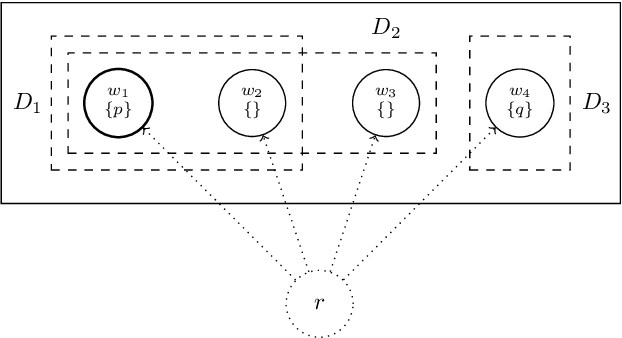


Abstract:Weak ontic necessity is the ontic necessity expressed by ``should'' or ``ought to'' in English. An example of it is ``I should be dead by now''. A feature of this necessity is whether it holds does not have anything to do with whether its prejacent holds. In this paper, we present a logical theory for conditional weak ontic necessity based on context update. A context is a set of ordered defaults, determining expected possible states of the present world. Sentences are evaluated with respect to contexts. When evaluating the conditional weak ontic necessity with respect to a context, we first update the context with the antecedent, then check whether the consequent holds with respect to the updated context. The logic is complete. Our theory combines premise semantics and update semantics for conditionals.
A Logic for Conditional Local Strategic Reasoning
Feb 11, 2021

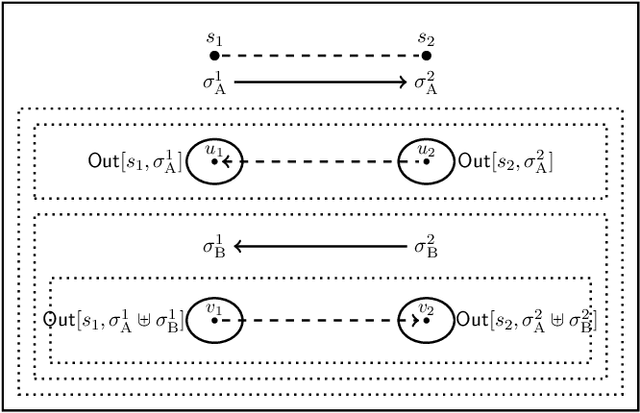
Abstract:We consider systems of rational agents who act and interact in pursuit of their individual and collective objectives. We study and formalise the reasoning of an agent, or of an external observer, about the expected choices of action of the other agents based on their objectives, in order to assess the reasoner's ability, or expectation, to achieve their own objective. To formalize such reasoning we extend Pauly's Coalition Logic with three new modal operators of conditional strategic reasoning, thus introducing the Logic for Local Conditional Strategic Reasoning ConStR. We provide formal semantics for the new conditional strategic operators in concurrent game models, introduce the matching notion of bisimulation for each of them, prove bisimulation invariance and Hennessy-Milner property for each of them, and discuss and compare briefly their expressiveness. Finally, we also propose systems of axioms for each of the basic operators of ConStR and for the full logic.
 Add to Chrome
Add to Chrome Add to Firefox
Add to Firefox Add to Edge
Add to Edge